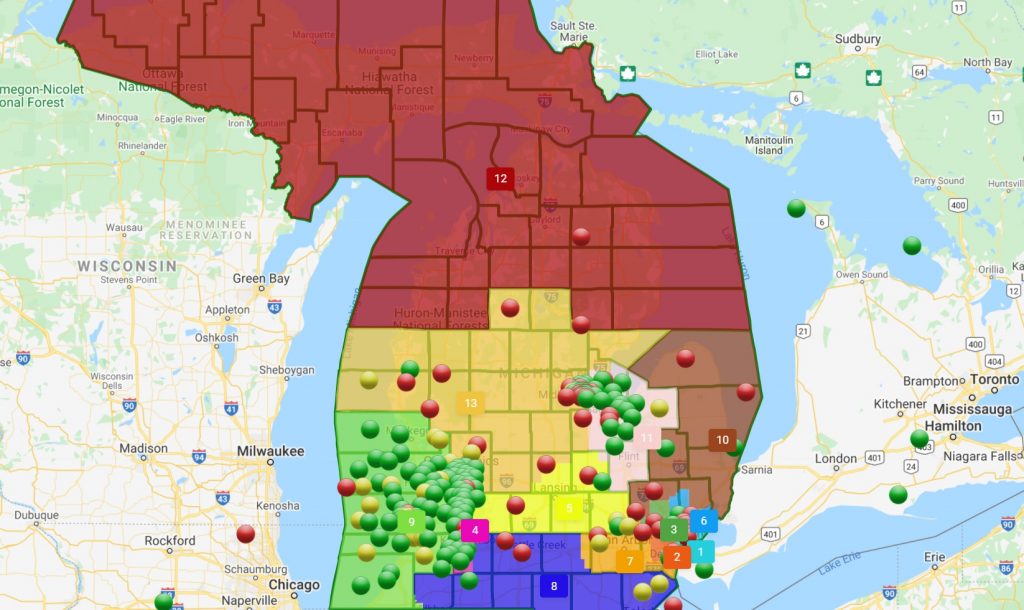Two Redistricting Commissioners Offer Insider’s Guide to Redrawing Michigan’s Political Maps
Commissioners Rebecca Szetela and Brittni Kellom respond to critics of their draft maps, and a redistricting expert talks about what they could improve.

The Michigan Independent Citizens Redistricting Commission has been drafting different maps while listening to comments from the public. The commission is kicking off more listening sessions in a new round of public hearings starting on Wednesday in Detroit, where it will be collecting public comment on 10 draft legislative and congressional maps.
“It’s about us as commissioners wanting to listen to the public — and we have.” –Brittni Kellom, Michigan Independent Citizens Redistricting Commission
Listen: Two commissioners and a redistricting expert discuss process of creating congressional maps.
Guests
Brittni Kellom is a member and former chair of the Michigan Independent Citizens Redistricting Commission, and she is a Democrat from Detroit. She says the work is challenging as the commissioners attempt to disentangle what political maps are best suited for all Michiganders. “It’s about us as commissioners wanting to listen to the public — and we have,” says Kellom.
Kellom acknowledges that some Detroit residents have been upset with the new drafted maps, which include districts that lack majorities of Black residents of eligible voting age. The commissioner says she wants critical Detroiters to lay out what kind of maps they specifically want to see. “I’ll also say to take a closer look at what we’ve actually created and looking at the metrics. You know, we did a phenomenal job of not only supplying maps for the public to look at but also the numbers,” she says.
Rebecca Szetela is the chair of the Michigan Independent Citizens Redistricting Commission, and she is an independent from Canton. She says the criteria for the maps are listed in the state constitution, which includes measures like Voting Rights Act compliance, equal population, communities of interest and partisan fairness. “Our goal throughout this process is sort of to systematically work through that list and make sure we’re complying with all the criteria,” says Szetela. Sometimes, Szetela says, the public is confused about the commission’s priorities, believing partisan fairness should be its only consideration.
“I think this is a much better approach than we had before. If there is something we don’t like, we can tell [the commissioners], we can write a report on it when it is still fixable.” –Jon Eguia, Michigan State University
Jon Eguia is a redistricting expert at Michigan State University, where he’s a professor of economics and political science, and the lead author of a report analyzing new draft maps from the Michigan Independent Citizens Redistricting Commission. He says he’s appreciative of the commission’s work, and wants to support it by measuring what it’s done and issuing constructive criticism. “I think this is a much better approach than we had before. If there is something we don’t like, we can tell [the commissioners], we can write a report on it when it is still fixable,” says Eguia.
To learn more about the Michigan Independent Citizens Redistricting Commission’s public meetings and the commission’s proposed draft maps, click here.
Trusted, accurate, up-to-date.
WDET strives to make our journalism accessible to everyone. As a public media institution, we maintain our journalistic integrity through independent support from readers like you. If you value WDET as your source of news, music and conversation, please make a gift today.
